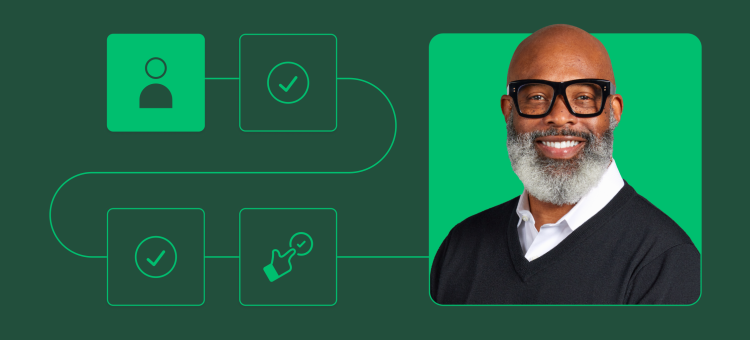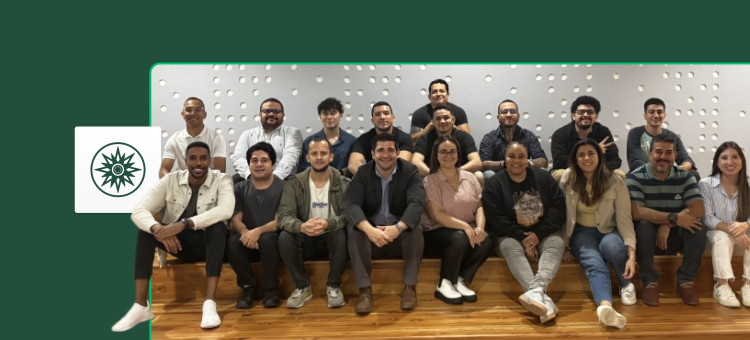Which Fortune 500 companies are you most interested in working for? Which do you think care most about their customers? And which would you say care least?
These are only a few of the questions we asked people across the United States in a study with Fortune last June. With a goal to better understand how consumers perceive the largest corporations, we used a set of five criteria in guiding our analysis. The criteria includes each company’s impact, their ability to change and adapt, how excited respondents would be to work there, the degree to which they care about their customers, and how the company has progressed over time.
To fuel our study, we polled 13,882 adults at random out of a pool of 3 million+ individuals who take surveys on SurveyMonkey every day. We weighted the panel of respondents by age, race, location, gender, and education, to give us a meaningful and representative sample. Lastly, to simplify our analysis and the survey-taking experience for participants, we limited the companies under evaluation to the largest 75 of the Fortune 500, and asked respondents at random, to evaluate 4 each.
Without further ado, here are some of our key findings:
The top companies that have had the most positive impact in the U.S.:
- United Parcel Service (UPS)
- Microsoft
- FedEx
- Amazon.com
- Walt Disney Company
- Home Depot
- Apple
- Intel
- Alphabet (Google)
- Costco Wholesale
Increase the power of your brand
You can’t improve what you don’t measure. Start tracking your key brand metrics today with SurveyMonkey Audience.
You’ll notice that the majority of these companies are dominant players in tech. Given our ever increasing demand and consumption of the products and services these tech giants churn out, it’s no wonder they came top of mind.
Costco, on the other hand, isn’t the type of company you’d typically expect to see here. It’s striking to see a retail company among innovative and fast-growing tech giants, which speaks volumes to the sustained value of their brand reputation and products.
The top companies that have had the most negative impact in the U.S.:
- Wells Fargo
- Freddie Mac
- JPMorgan Chase
- Fannie Mae
- Comcast
- Bank of America
- Exxon Mobil
- Cigna
- American Airlines
- Pfizer
Several banks top the charts. Why? It turns out that public distrust since the financial crises has been slow to recover. Complement this with the industry’s notoriously excessive pay to executives and a poor work-life balance for the majority of employees and we’ve got plenty of reasons to choose from.
The top companies who care least about their customers:
- Wells Fargo
- Comcast
- Freddie Mac
- Fannie Mae
- JPMorgan Chase
- Delta Air Lines
- American Airlines
- Pfizer
- Citigroup
- Archer Daniels Midland
This list shouldn’t come as a surprise. Nearly every single one has had a major event in recent memory that’s resulted in a widely documented negative customer experience.
Here are some that come top of mind for me:
Wells Fargo: Caught in creating millions of fake savings and checking accounts on behalf of customers.
Comcast: The infamous recording of a customer service rep refusing to cancel a customer’s account.
Freddie Mac and Fannie Mae: Key players in the subprime mortgage crisis.
Pfizer: Raised the price of nearly 100 drugs that Americans depend on by 20% during the first half of 2017.
Let’s move on to a more positive list…
Top companies women are most excited to work for:
- Walt Disney Company
- Alphabet (Google)
- Microsoft
- Apple
- Amazon.com
- Intel
- Hewlett Packard
- Johnson & Johnson
- HP
- International Business Machines (IBM)
It looks like tech companies are once again dominating our list. With the tech scene facing an ultra-competitive environment for talent, they’ve led the way in both improving and expanding on benefits like maternity leave, flexible work schedules, and free food options. This is on top of the fact that average salaries in Software and IT lead the country, followed by the Hardware and Networking space.
What did men have to say?
Top companies men are most excited to work for:
- Microsoft
- Boeing
- Alphabet (Google)
- Apple
- Intel
- Walt Disney Company
- Lockheed Martin
- Cisco Systems
- Amazon.com
- Caterpillar
And what about the youngest employees—millennials?
Top companies millennials are most excited to work for:
- Microsoft
- Walt Disney Company
- HP
- Alphabet (Google)
- Apple
- Boeing
- Intel
- Caterpillar
- Amazon.com
- Lockheed Martin
So…the lists between women, men, and millennials aren’t too different. With over half of the companies between each of these demographic groups overlapping, we’re led to believe that they’re using a similar set of criteria when deciding where to work.
Until next time
Given the breadth of the study, we have plenty more to tell. Look out for future blog posts that continue to showcase our findings and take further steps toward making sense of the results.



